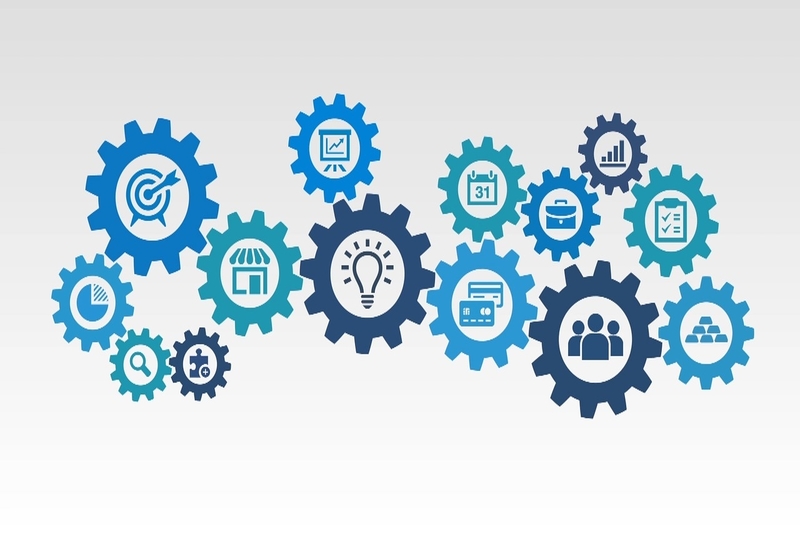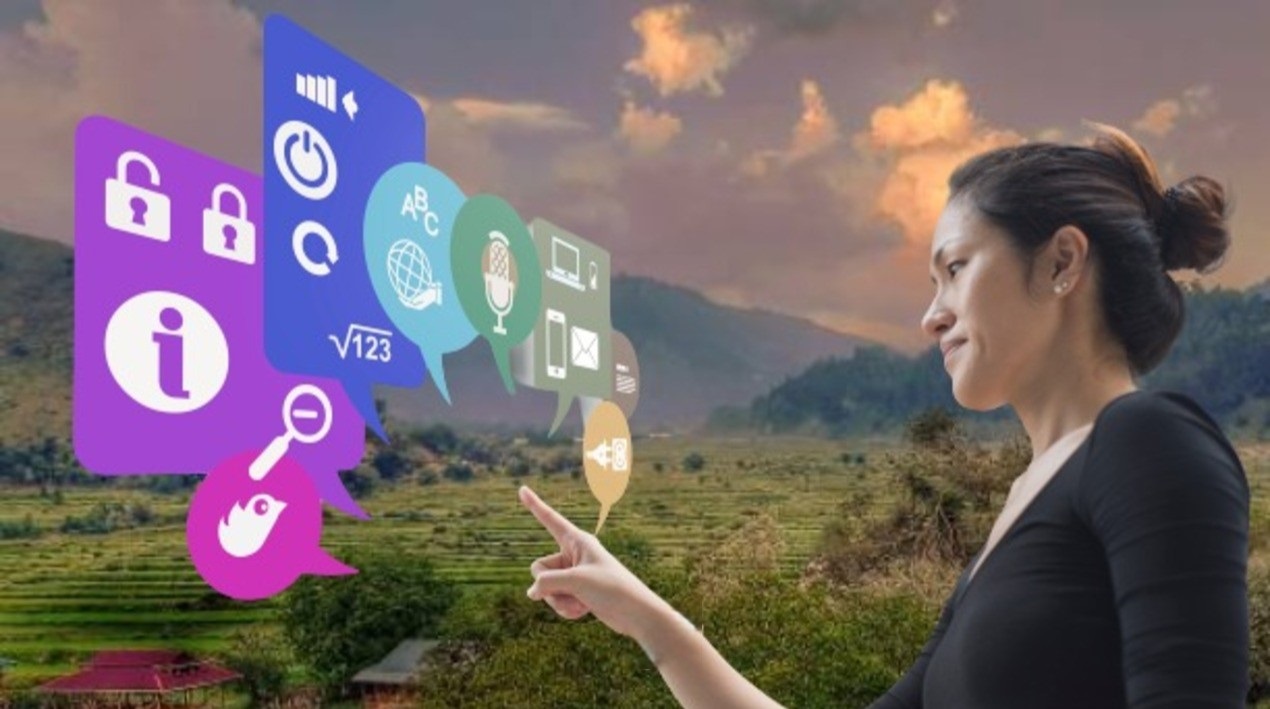
Learnings from other countries, their policies and plans about technology and innovation provide a wide scope of knowledge.
Exploring their best practices, hearing of existing expertise they have tapped and initiatives they are currently embarked on are great resources for other countries to adapt and adopt.
 OpenGov had the honour of interviewing Hiroki Yoshida, Deputy Director of the Information Project Office at METI, Japan and got exclusive insights on the nation’s technology and innovation efforts.
OpenGov had the honour of interviewing Hiroki Yoshida, Deputy Director of the Information Project Office at METI, Japan and got exclusive insights on the nation’s technology and innovation efforts.
METI is the Ministry of Economy, Trade, and Industry, which is leading economic policies in Japan and supporting businesses. The Information Project Office (IPO) is the division that deals with digital transformation of METI by planning an overall strategy for its digitalisation, budgeting, and capacity building.
He founded Digital Transformation Office (DTO) inside the ministry involving IT system-division last July and pushed forward digitalisation of the government administration for corporates.
Efforts Taken by the Information Project Office for Digitalising METI
Japan’s Information Project office focuses on ways to develop public digital services for corporates in METI. The office envisions the whole structure of systems and plans how to develop services efficiently based on standardised rules and architecture.
To develop IT capabilities inside the ministry, Hiroki said that IT professionals from the private sector have been hired and made project managers for each service that METI plans to digitalise. This group makes communications with IT vendors smoother by translating jargon into non-technical terms for public officers to understand. This enables METI to develop digital services more effectively and efficiently.
In addition, to enhance public officers’ IT literacy, video materials on the process of digitalisation were created on the YouTube platform. Moreover, a training program was conducted for young officers to understand and implement design thinking and data utilisation.
A conference called “Govtech conference”, which intends to create a new ecosystem for digital public services by several stakeholders such as IT ventures, civic tech sector, and local governments was also held.
Actions Taken for the Digitalisation of Government Administrons for Corporates
The IPO created a unified authentication system for corporates to realise a single sign-on for several government digital services.
Named “gBizID”, it was used for METI’s digital services in financial year (FY) 2019. There are plans to expand its usage to other ministries’ services from FY2020 onwards.
Hiroki shared that there are also developments for a unified grants-application system called “jGrants”, which enables businesses to fully undergo grants-application procedures digitally.
This system will be used to provide grants for small and medium enterprises (SMEs) by METI in FY2019 and will be expanding its usage to other ministries and local governments in FY 2020.
Agency for SMEs, which deals with supports for SMEs under METI, is now developing a portal for SME called “Mirasapo Plus”. This all-in-one portal will provide SMEs with information of the supports available for them and of the applications for government services.
There are plans to provide recommendations of government supports to SMEs based on the analysis of their data.
METI is also pushing to digitalise other government services, such as applications for compliance with industrial safety law, specific business permissions, and others.
Agility of Japanese Government
Compared to other ministries, METI is more agile in terms of policymaking and its implementation.
Hiroki said that this is a result of the ministry dealing with business issues and communicating with several stakeholder’s day-to-day and having a culture in which officers can discuss social issues openly for national benefits from the viewpoint of economic growth.
In terms of IT development, he said that the Japanese government is slowed down because most IT systems are developed in the waterfall way. Moreover, most government officers are dependent on big Japanese IT vendors and are unaware of how to improve their system more rapidly.
Due to these reasons, METI has hired IT professionals from the private sector and pushed for the adoption of agile methods in several projects.
They also collaborate with start-ups which are good at agile developments. The aim is to push for agile IT development ways but also mindsets for agile policy implementation into their government office.
Challenges Faced by the Government for Attaining Agility
Hiroki said that the Japanese government needs to reinforce IT capabilities within it. There is a big asymmetry of information between IT vendors and public officers. This leads to higher costs, longer time and inconvenience to develop user-friendly services.
“A culture that allows small failures should be shared among government officers. If not, they won’t be able to implement new ideas.”
Senior managers need to endorse such culture and give young officers the free space and confidence to experiment.
The Act of Digital Government Procedures was passed this May, but Hiroki said that there still are a lot of rules implemented based on paper procedures. Such premises should be changed for the government to keep up with the digital age.
Actions Taken by the Digital Transformation Office
The IT project office founded the METI DX office collaborating with IT service division and Policy Evaluation division to promote digitalisation and data utilisation in a more integrated way for the ministry.
They standardise the ways of IT development and infrastructure adoption by sharing the same principles among these 3 divisions (IT project office, IT service division, policy evaluation division).
They are now creating a standardised specification document for IT development. It will be applied to most IT procurements by METI.
By creating DX office, these divisions can share the practices for new IT developments and data utilisation with each other. “This will create a rapid learning curve inside the ministry and promote digitalisation faster than before,” said Hiroki.
Technologies Being Pushed for Government Adoption
The government pushes cloud-first principle, which promotes government agencies to develop services based on cloud resources. METI is now mainly using IaaS and PaaS for IT development.
They have also introduced SaaS for project management and inner communications.
Attempts have been made for implementing the use of AI for processing data and making operations more efficient. For example, it will be used for tailoring recommendations of government supports to SMEs and smart detection of violation of laws by businesses. However, most projects are in PoC (Proof of Concept) phase.
METI also plans to introduce container technologies, which will enable users to manage several applications under one OS, for efficient service management in the near future.
Plans at Hand for Japan’s Commerce and Trade Industry/METI
METI plans to create data exchange platforms like X-road in Estonia from FY2020 so that the government can connect data coming from different administrations with each other and enable businesses to use their data more efficiently for their applications.
They also plan to integrate their cloud resources for their digital services by creating a CoE (Center of Excellence), which controls all the services from the view of efficient resource allocation) to decrease their cost and manage them more efficiently.
Digitalising their internal operations for IT development is another attempt at hand. They are experimenting to introduce low coding development software to self-digitalise their services and operations, rather than procuring their development from IT vendors.
They are also researching ways to apply AI and other analytic tools into their government services and policymaking. They plan to collaborate with universities to accelerate the use of AI within the ministry.
Hopes for the Future of the Japanese Government
The Japanese government declared digitalisation of the whole government administration, but it still requires the capabilities to achieve that.
There are hopes for the Prime Minister to set it as their top agenda and pick a top-level tech talent to be the CIO of government digital transformation.
He said that all government officers should realise that digitalisation is crucial because the aging Japanese population will make short of labour resources. They should learn the basics of IT and think about how they can apply it to renovate their administration and policymaking.
“People need to understand that digital transformation is a changemaker for this (automated) situation.”
In the near future, all simple tasks in the government should be automated. Hiroki said that public services will become invisible because of the seamless connection with commercial services’ interfaces.
He said that most government applications should be automated once citizens put their information into government systems, to eliminate stressful tasks for government applications.
As public services are disrupted by digital innovations, it will encourage government officers to focus more on high value-added work and create a more rich society in terms of culture and human relationships.
In Japan, many government officers are busy with small tasks and they cannot afford to think about what values governments should deliver to the people.
Mindset change is needed and collaboration with multi-stakeholders should be done to rapidly implement effective solutions.
















